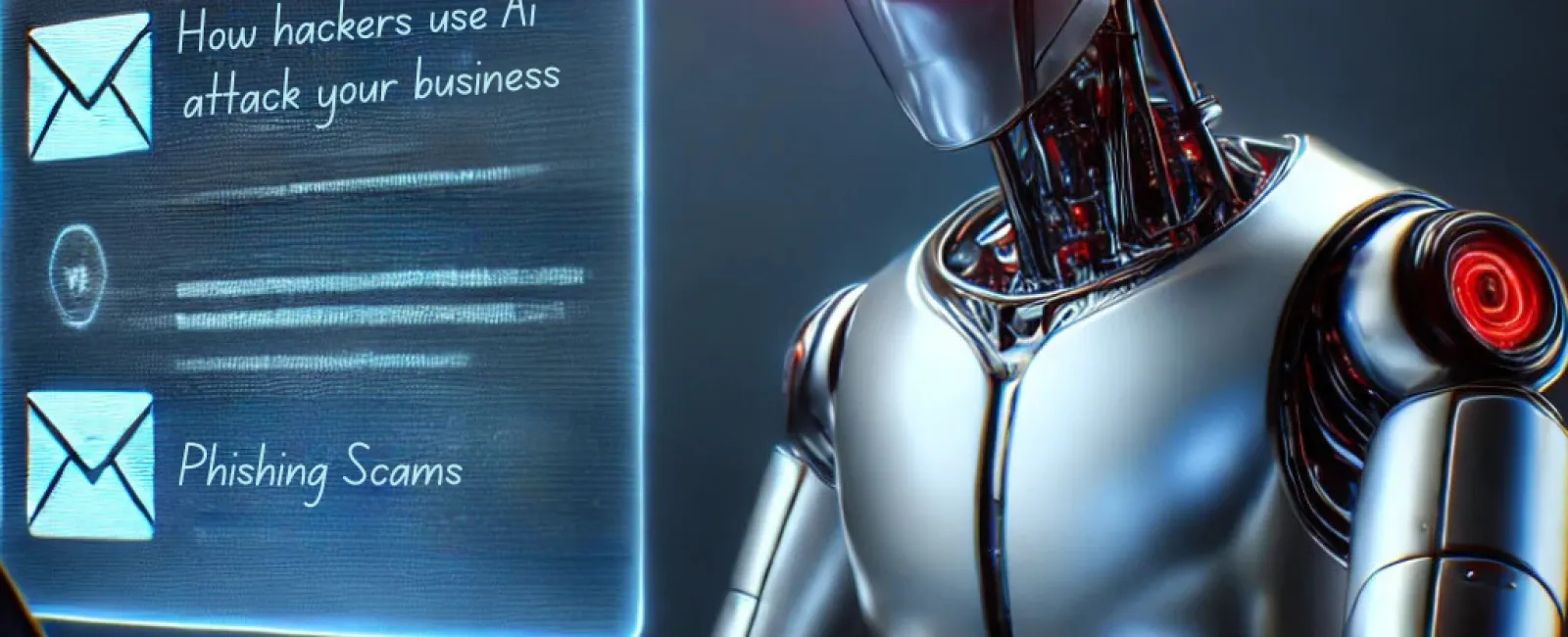January 20, 2025
If you believe that hackers are only interested in Fortune 500 companies, you need to reconsider.
With the rise of artificial intelligence, cybercriminals have enhanced their ability to launch attacks, making small businesses prime targets. The reason is simple: hackers recognize that smaller companies lack the resources of larger corporations but still possess valuable data that can be exploited.
Gone are the days when hackers relied on poorly crafted emails or simple password-guessing techniques. AI equips them with sophisticated tools that allow them to outsmart and outmaneuver businesses that are unprepared. Without a robust defense, your business is at risk of being breached.
Here's how hackers are leveraging AI and, more importantly, how you can safeguard your business against becoming their next target.
AI-Powered Phishing Scams
Phishing attacks have evolved from generic, poorly written emails to highly personalized and convincing messages. Hackers now utilize AI to:
- Gather personal information from social media and business websites.
- Create emails that imitate real contacts or reputable brands.
- Tailor language and tone to appear authentic.
For instance, consider receiving an email that appears to be from your bank. It addresses you by name, mentions your company, and references a recent "transaction attempt" that failed. It urges you to "click here to confirm your information" or "update your credit card details to avoid account suspension."
Here's how the attack unfolds:
- Clicking the link may lead you to a counterfeit website designed to replicate your bank's login page. When you enter your credentials, hackers capture your username and password.
- Alternatively, the link could install malware on your system, providing hackers with silent access to your data, keystrokes, or even your entire network.
The outcome? Hackers gain the means to drain your account, steal sensitive business information, or launch further attacks against your company.
Automated Vulnerability Scanning
Hackers are now using AI to automate the scanning of small businesses for vulnerabilities. AI-powered tools can:
- Identify outdated software or insecure network configurations.
- Exploit these vulnerabilities more swiftly than ever before.
The impact is significant: small businesses with limited IT resources are often easy targets for these automated attacks. Hackers can pinpoint and exploit a weakness in mere minutes, gaining access to your systems before you are even aware of a problem. The result can be costly downtime, data theft, or even complete loss of network access.
AI-Driven Malware
AI allows hackers to develop rapidly evolving malware. These malicious programs can:
- Evade detection by learning how antivirus software operates.
- Adapt in real time to take advantage of new vulnerabilities.
The real danger lies in AI-powered ransomware, which can lock down systems more quickly and demand ransoms more effectively, increasing the risk for small businesses.
Deepfake Technology For Social Engineering
AI-generated deepfake videos and audio are no longer confined to Hollywood. Hackers utilize this technology to impersonate executives or trusted contacts, convincing employees to:
- Transfer funds.
- Share sensitive information.
For example, imagine your CFO receives a call that sounds exactly like your CEO, complete with their tone and phrasing. The "CEO" urgently instructs the CFO to wire funds to a vendor to secure a major deal. The voice is so convincing that the CFO complies without hesitation, only to later discover that the funds were sent to a fraudulent account.
Deepfakes make these scams alarmingly believable, leaving even the most cautious employees susceptible to manipulation.
Advanced Password Cracking
AI algorithms can guess passwords at incredible speeds. Utilizing techniques like pattern recognition, hackers can break even moderately strong passwords.
Tip: Multifactor authentication is no longer optional; it is essential to combat this escalating threat.
How To Protect Your Business From AI-Powered Cyberthreats
1. Invest In AI-Driven Defenses: Employ cybersecurity tools that use AI to detect and respond to threats in real time.
2. Educate Your Team: Train employees to recognize phishing attempts and social engineering strategies.
3. Conduct Regular Audits: Frequently evaluate your IT infrastructure for vulnerabilities.
4. Strengthen Authentication: Implement multifactor authentication and promote the use of strong, unique passwords.
5. Partner With Experts: Managed IT providers can assist small businesses in staying ahead of threats through proactive monitoring and security solutions.
AI is reshaping cybersecurity for both attackers and defenders. While hackers exploit AI to identify vulnerabilities, businesses can also harness it to strengthen their defenses. Staying informed and proactive is crucial for safeguarding your business in this constantly changing digital landscape.
Ready to fortify your business? Click here or call our office at 678-940-8992 to
schedule a FREE 15-Minute Discovery Call today to ensure your defenses are AI-proof.




